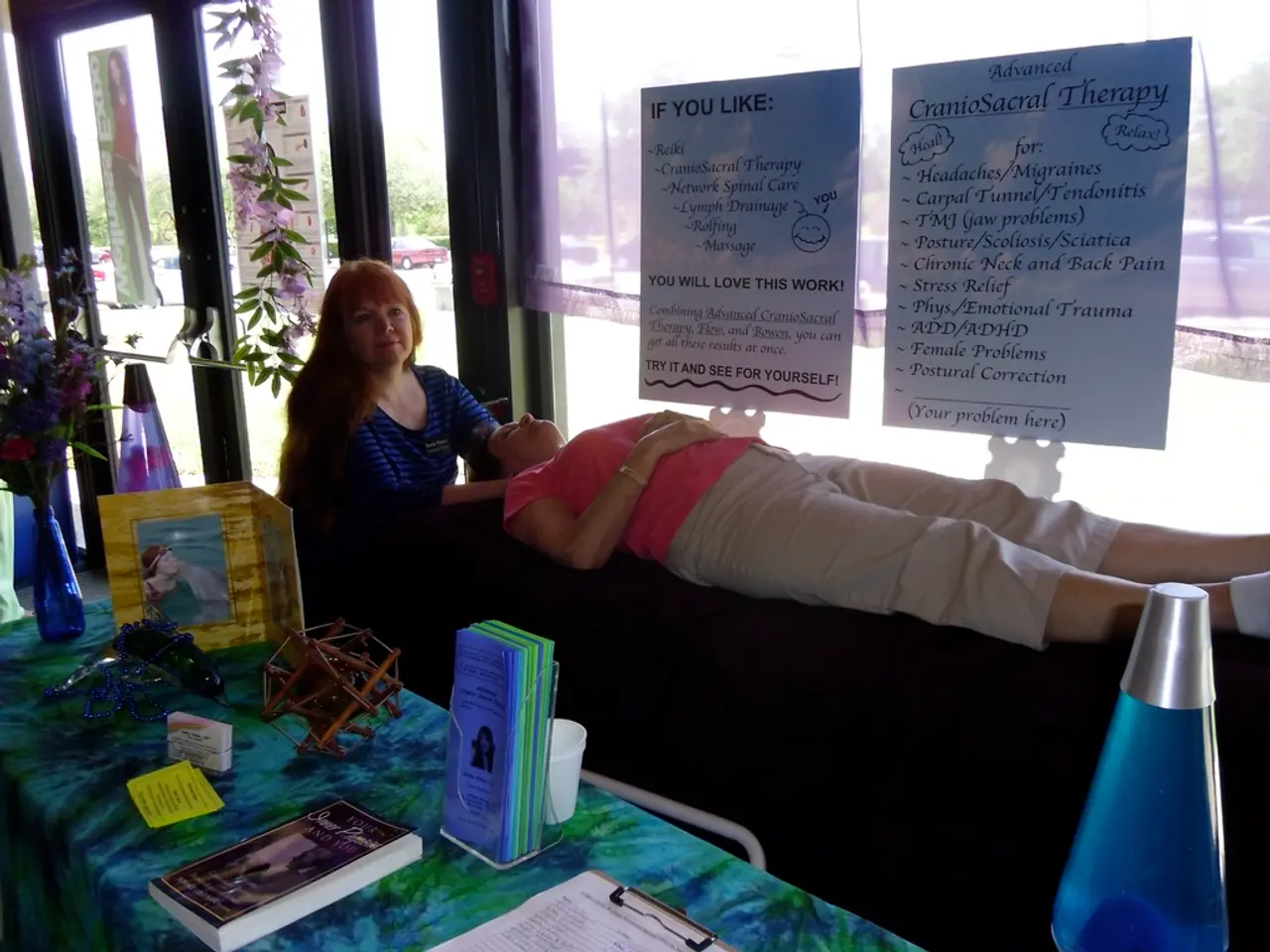The mysterious cause behind unexpected muscle spasms during sleep that affect numerous individuals.
In the realm of sleep, a common yet mysterious occurrence is the hypnic jerk, a sudden jolt that wakes a person up during the onset of sleep. Clinical Psychologist Daniel Sullivan, who lectures at Griffith University, sheds light on this intriguing phenomenon.
Approximately 70% of people will experience a hypnic jerk at some point in their lives. The exact cause of these jerks is not definitively known, but sleep researchers believe it may be due to a misinterpretation of muscle relaxation by the brain.
Some research suggests that hypnic jerks can be more common among people with Parkinson's disease, although they are not considered reliable indicators of the condition. However, it's important to note that for most people, these jerks are not associated with any health or sleep problems.
Insomnia, a common sleep problem that is often misunderstood, can be exacerbated by factors such as stress, anxiety, and excessive intake of stimulants like nicotine or caffeinated drinks. Good sleep hygiene can help reduce the likelihood of hypnic jerks.
Good sleep hygiene involves controlling these factors to ensure a restful night. This includes maintaining a consistent sleep schedule, creating a sleep-conducive environment, and avoiding stimulants before bedtime.
Professor Yaqoot Fatima and Senior Lecturer Alexandra Metse, faculty at the University of the Sunshine Coast, also emphasise the importance of good sleep hygiene. They remind us that 'beauty sleep' is not a myth; how we sleep affects how we look and how attractive others find us, according to a neurologist and sleep expert.
If you are experiencing hypnic jerks while on prescription medications and feel concerned, it is recommended to speak with your prescribing doctor. Certain medications, particularly antidepressants such as selective serotonin reuptake inhibitors (SSRIs), can cause hypnic jerks as a side effect.
Frequent hypnic jerks that disrupt sleep can be a rare side effect of medications such as escitalopram, sertraline, and fluoxetine, and may resolve quickly after stopping the medication.
In conclusion, while hypnic jerks are a common and generally harmless sleep phenomenon, they can become problematic if they disrupt sleep and lead to anxiety or insomnia. By understanding the factors that contribute to hypnic jerks and practicing good sleep hygiene, we can ensure a restful and rejuvenating night's sleep.
This article is republished from The Conversation under a Creative Commons licence.
Read also:
- Restoring SCN2A gene function in mice through CRISPR activation enhances neurodevelopmental outcomes.
- Tracking Grapes for International Shipping
- New York joins a multistate health coalition to counteract chaos in federal vaccine distribution efforts
- Enhanced Iron Absorption in Female Health: Biotechnology Developed Plant Protein Outperforms Iron Supplements in Fermentation






